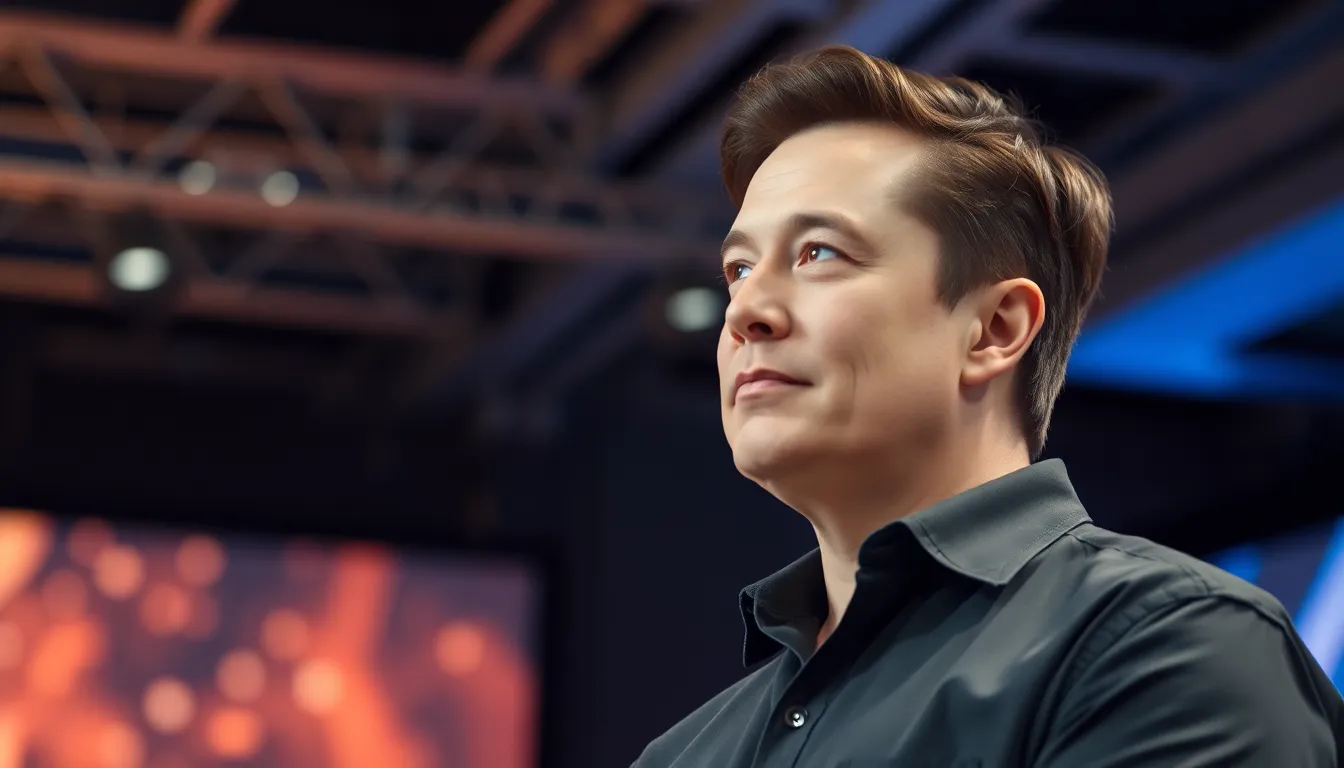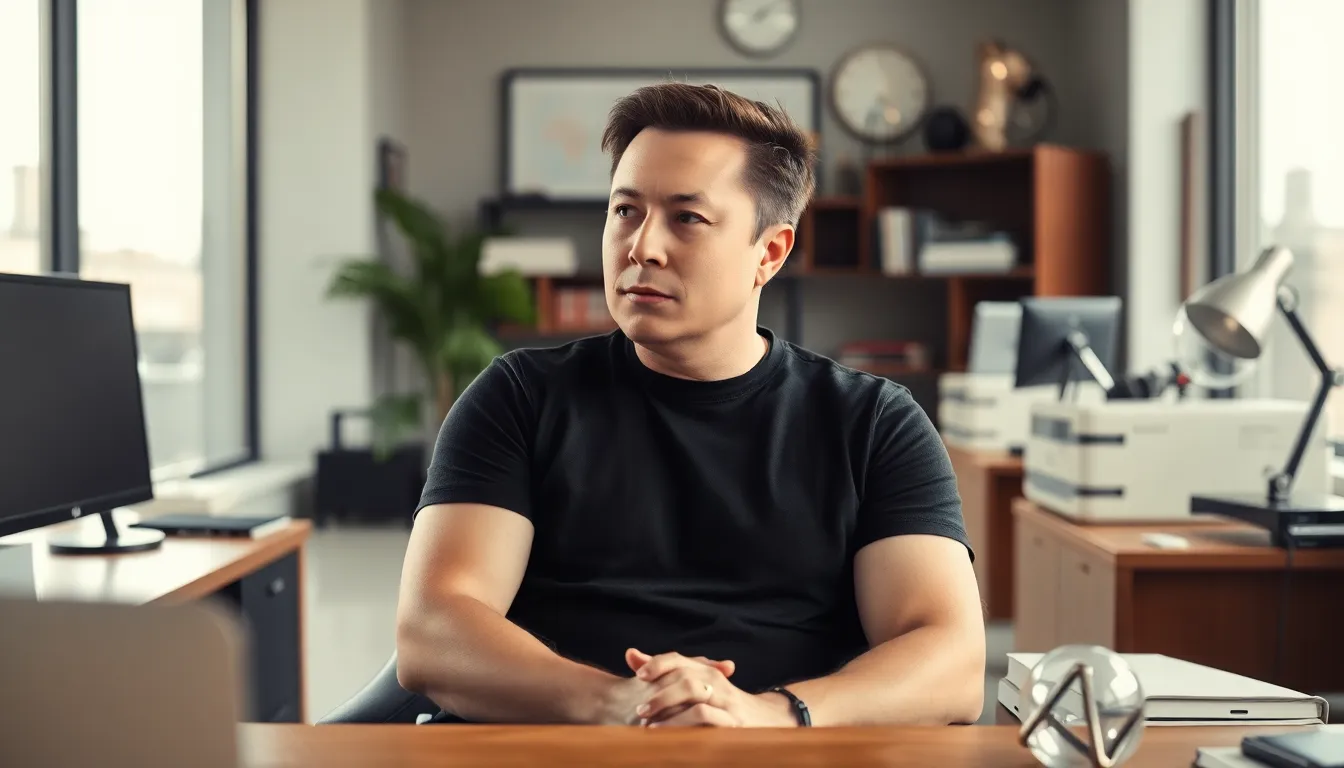Elon Musk, the man who’s made headlines for launching rockets and revolutionizing electric cars, has also sparked curiosity about his beliefs. Is he an atheist or does he hold a different view on spirituality? With a mind that seems to orbit somewhere between genius and insanity, it’s no wonder people are eager to uncover what fuels his worldview.
Musk’s tweets often dance around philosophical musings, leaving fans and skeptics alike scratching their heads. He’s not just a tech mogul; he’s a modern-day philosopher who challenges conventional thinking. Dive into the intriguing debate surrounding his beliefs and find out if Musk’s views on religion are as groundbreaking as his innovations, or if he’s simply too busy planning humanity’s escape to Mars to bother with the big questions.
Table of Contents
ToggleBackground On Elon Musk
Elon Musk, born on June 28, 1971, in Pretoria, South Africa, emerged as a prominent figure in technology and innovation. He co-founded Zip2, an online city guide software company, at a young age, demonstrating his entrepreneurial spirit early on. Later, he founded X.com, which eventually became PayPal, revolutionizing online payments.
Musk’s influence extends beyond Silicon Valley. As CEO of SpaceX, he launched initiatives like reusable rockets and plans for Mars colonization, showcasing a commitment to ambitious goals. Tesla, under his leadership, transformed the automotive industry with electric vehicles. Aiming for sustainability, Musk pushed the boundaries of what technology can achieve.
Philosophically, Musk often shares thoughts that appear to provoke dialogue on existential themes. Questions about life, artificial intelligence, and the future of humanity frequently arise in his discussions. He once mentioned that the universe might be a simulation, aligning with speculative ideas about reality.
Moreover, Musk engages with scientific concepts, often emphasizing humanity’s role in advancing civilization. He believes in the necessity of exploring other planets, linking this vision to the survival of the human species. Conversations about religion and spirituality occasionally surface in his interviews, reflecting a complex relationship with these concepts.
In recent years, his tweets have sparked debates about morality, the afterlife, and other metaphysical questions. Though he doesn’t definitively label himself an atheist, his views often lean toward skepticism regarding traditional religious beliefs. Engaging with philosophical inquiries, Musk invites others to explore who we are and where humanity is headed.
Elon Musk’s Beliefs

Elon Musk’s views on religion spark curiosity. His perspectives often reflect a blend of skepticism and intrigue toward spiritual beliefs.
Personal Statements About Religion
Musk has made several statements regarding religion. He described himself as “not religious” during interviews. His tweets sometimes express criticism toward organized religion. A key example includes his comments about dogma and questioning beliefs without evidence. Musk emphasizes the importance of scientific inquiry over faith-based assertions. He highlights humanity’s reliance on rational and empirical understanding, which shapes his view on existence. Although he does not explicitly identify as an atheist, his stance leans toward skepticism about traditional doctrines.
Public Interpretations of His Views
Public interpretations of Musk’s beliefs vary widely. Many see him as an atheist due to his outspoken skepticism. Others appreciate his philosophical musings, which invite discussions on existence and the universe. His tweets often ignite debates about the intersection of science and spirituality. Analysts note his preference for technological solutions to existential challenges while pondering human destiny. Some believe he represents a new wave of thinkers challenging conventional spirituality. This interpretation aligns with his focus on innovation and exploration of other planets. Overall, his beliefs foster ongoing conversations about faith, science, and the future of humanity.
Connections Between Elon Musk and Atheism
Elon Musk’s views on atheism intrigue many. He often expresses skepticism toward organized religion while championing scientific thought.
Comparisons to Other Notable Atheists
Musk’s beliefs align with other notable atheists like Richard Dawkins and Neil deGrasse Tyson. These figures advocate for secular reasoning and scientific explanations over faith-based beliefs. Like them, Musk promotes critical thinking and encourages questioning established norms. Public discussions often highlight his critical perspectives on religious doctrines, aligning him with the broader movement of atheism and secularism. Observers note that his stance fosters a culture of inquiry similar to these thinkers.
Influence of Science and Technology
Musk’s focus on science and technology shapes his worldview. Advances in space exploration and artificial intelligence resonate with his understanding of reality. By prioritizing scientific principles, he emphasizes the importance of empirical evidence over spiritual beliefs. His initiatives in electric vehicles and renewable energy reflect a commitment to sustainable practices rooted in scientific research. Engaging with scientific concepts allows Musk to challenge traditional viewpoints, inviting dialogue on the intersection of faith, technology, and existence.
Public Reactions and Debates
Elon Musk’s views on religion, particularly his stance on atheism, provoke varying reactions and stimulate debates across the public sphere.
Supporters’ Perspectives
Supporters often regard Musk as a forward-thinking individual who emphasizes scientific reasoning over traditional beliefs. They appreciate his focus on empirical evidence, believing that it inspires others to question established doctrines. His advocacy for critical thinking resonates with many, promoting a culture that values innovation. Supporters consider his connection to notable atheists like Richard Dawkins significant, suggesting it reflects a modern approach to spirituality. This alignment with secular reasoning reinforces their perception that he champions rational discourse about existence.
Critics’ Perspectives
Critics express concern about Musk’s dismissive attitude toward organized religion, arguing it may undermine valuable cultural narratives. They contend that his skepticism could alienate individuals who find meaning in faith. Critics also highlight what they see as an oversimplification of complex spiritual concepts. Some argue that while he’s a proponent of technology, his views might overlook the emotional and philosophical needs of humanity. Concerns arise that his focus on scientific inquiry lacks consideration for the deeper existential questions many face.
Elon Musk’s beliefs about spirituality and religion remain a topic of intrigue and debate. His skepticism toward organized religion and emphasis on scientific inquiry suggest a complex relationship with faith. While he may not explicitly label himself as an atheist, his views resonate with those who prioritize empirical evidence over traditional doctrines.
Public perceptions of Musk’s beliefs vary widely. Supporters admire his focus on critical thinking and innovation, while critics express concerns about the potential implications of his dismissive stance toward organized religion. Ultimately, Musk’s philosophical musings and technological pursuits continue to inspire discussions about the intersection of faith, science, and humanity’s future.



